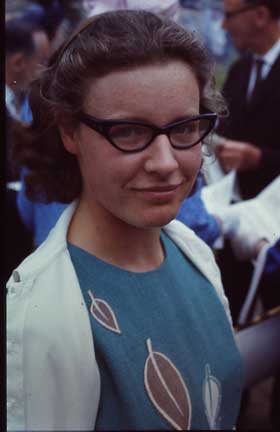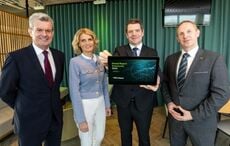Belfast-born astrophysicist Dame Jocelyn Bell Burnell, 75, has donated the £2.3m ($3m) prize money she received after being awarded the Breakthrough Prize in Fundamental Physics.
The money will be given to the Institute of Physics (IOP) and will be used to fund scholarships for underrepresented groups in the sciences
“This prize is an excellent and hugely appropriate acknowledgement of Jocelyn’s work,” IOP president Professor Dame Julia Higgins told the Independent.
Read More: New peace-building project uses science fiction to envision new futures in NI
“Her discovery of pulsars still stands as one of the most significant discoveries in physics and inspires scientists the world over.
Bell Burnell was the first scientist to have detected a pulsar — neutron stars that emit electromagnetic radiation from their poles — in 1967 at Cambridge. Two of her male colleagues, Anthony Hewish and Sir Martin Ryle, were given the 1974 Nobel Prize in Physics for the research, but Bell Burnell was overlooked.

Susan Jocelyn Bell (Burnell) in 1967. Credit: Wikipedia/CC BY-SA 2.0
“A lot of the pulsar story happened because I was a minority person and a PhD student,” Bell Burnell. “Increasing the diversity in physics could lead to all sorts of good things.”
Bell Burnell, a Quaker who embraces simple living, told BBC News: “I don't want or need the money myself and it seemed to me that this was perhaps the best use I could put to it.”
Bell Burnell, a visiting astronomy professor at Oxford University, has won multiple awards throughout her career. She was the first female president of both the Institute of Physics and the Royal Society of Edinburgh, and in 2007, she became a Dame Commander of the Order of the British Empire.
Wikipedia notes that Jocelyn Bell was born in Lurgan, Northern Ireland to M. Allison and G. Philip Bell. Her father was an architect who had helped design the Armagh Planetarium, and during visits she was encouraged by the staff to pursue astronomy professionally Young Jocelyn also discovered her father's books on astronomy.
Read More: Inside Ireland's most exciting tech, science, and arts fest
According to a press release, the Breakthrough Prize recognized “Bell Burnell’s 1967 Detection of Radio Signals from Rapidly Spinning, Super-Dense Neutron Stars and a Lifetime of Inspiring Scientific Leadership”
The Breakthough Prize honors scientists who have made “profound contributions to human knowledge.” The prize has previously been awarded to Stephen Hawking, the CERN researchers who discovered the Higgs boson, and the LIGO Collaboration that detected gravitational waves.
Bell Burnell, who will be the fourth recipient of the award, will be honored at a ceremony on November 4.
H/T The Guardian




Comments